So many anglers can relate to fishing next to another angler; you have cast in virtually the same place, and he goes home with more fish than you by a significant margin. When it happens, there are few things more frustrating. It’s a cop-out to put it down to luck; the reasons are often much more scientific. In my time fishing, I have learned that even the smallest details can profoundly affect your catch conversion rates. But what are those details?
1) WATERCRAFT
It may look like he or she is cast in a similar spot to you, but are they? Is there an underwater gully, a reef, a back eddy, a mussel bed, or some other fish-holding feature that means they are in the thick of the fish and you are not? Sometimes, we assume beaches are the same all the way along, because they look the same from land, but often they are not. Chesil Beach in Dorset would be a great example when looking for plaice, cod, or blonde rays.
2) DISTANCE
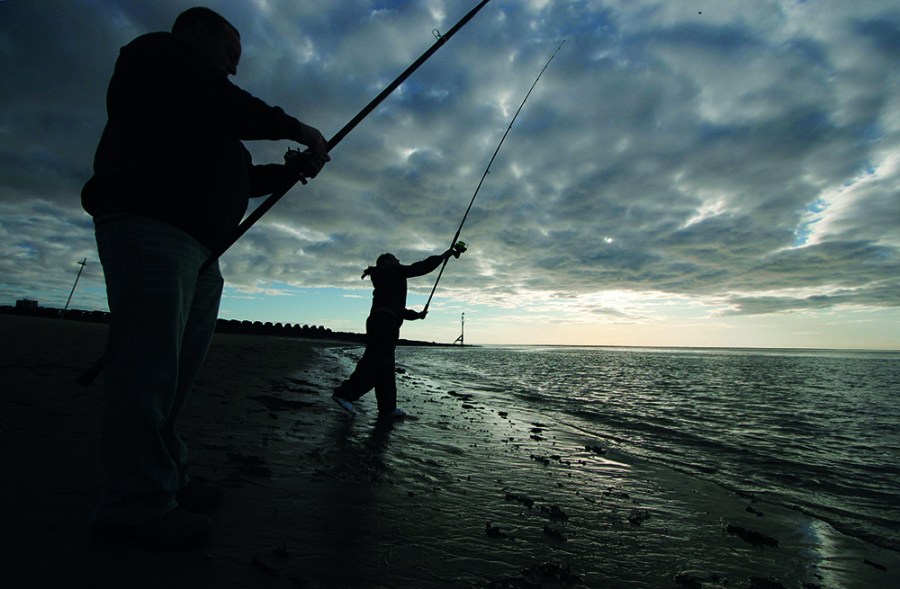
A few yards shorter or longer can make all of the difference. Pay attention to exactly where the anglers who are into the fish are casting in terms of range. Successful match anglers are very good at this. If you need a casting lesson or two, the cost could be a great investment. You’ll have the versatility to cover more ground, and nobody will have the edge on you. Another tip is to bounce a plain lead around at the start of the session to see if you can find depressions or contours that may attract fish looking for food.
3) BITES
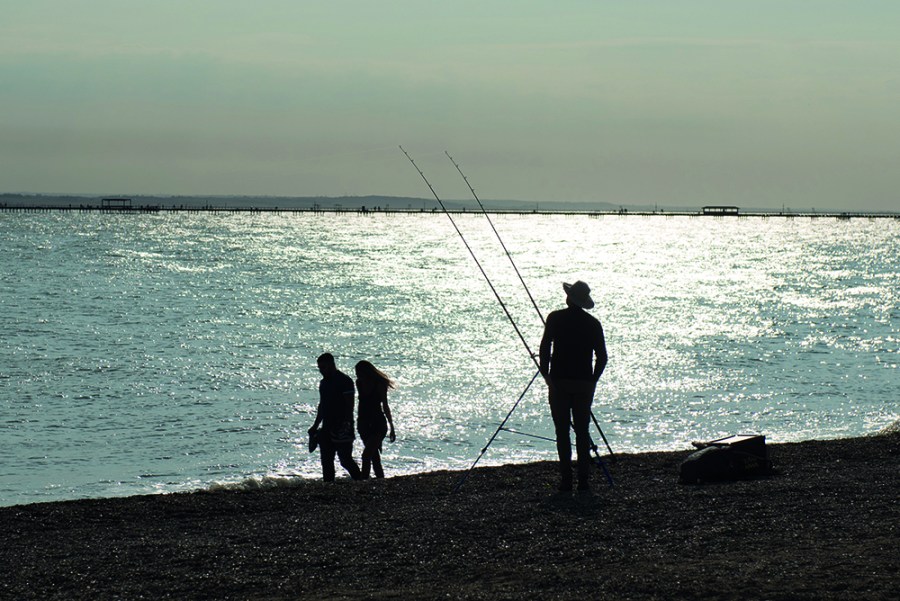
Are you missing bites while they are converting? Are they faster at striking the bites (bass and cod), or more patient with letting bites develop (rays or flatties)? This can make a big difference in terms of conversion. A great example might be sole, flounder or plaice fishing: I have one friend who sits down and pours himself a cup of tea when he identifies the bite, and he doesn’t wind in until he has finished his drink. Another example might be the angler who is bass fishing and strikes very quickly versus another who may wait too long and miss almost every bass take. It is a case of horses for courses. Experience counts for a lot. Always keep an eye on your rod tips, or the fish will come and go without you even noticing. Don’t be distracted.
4) HOOKS
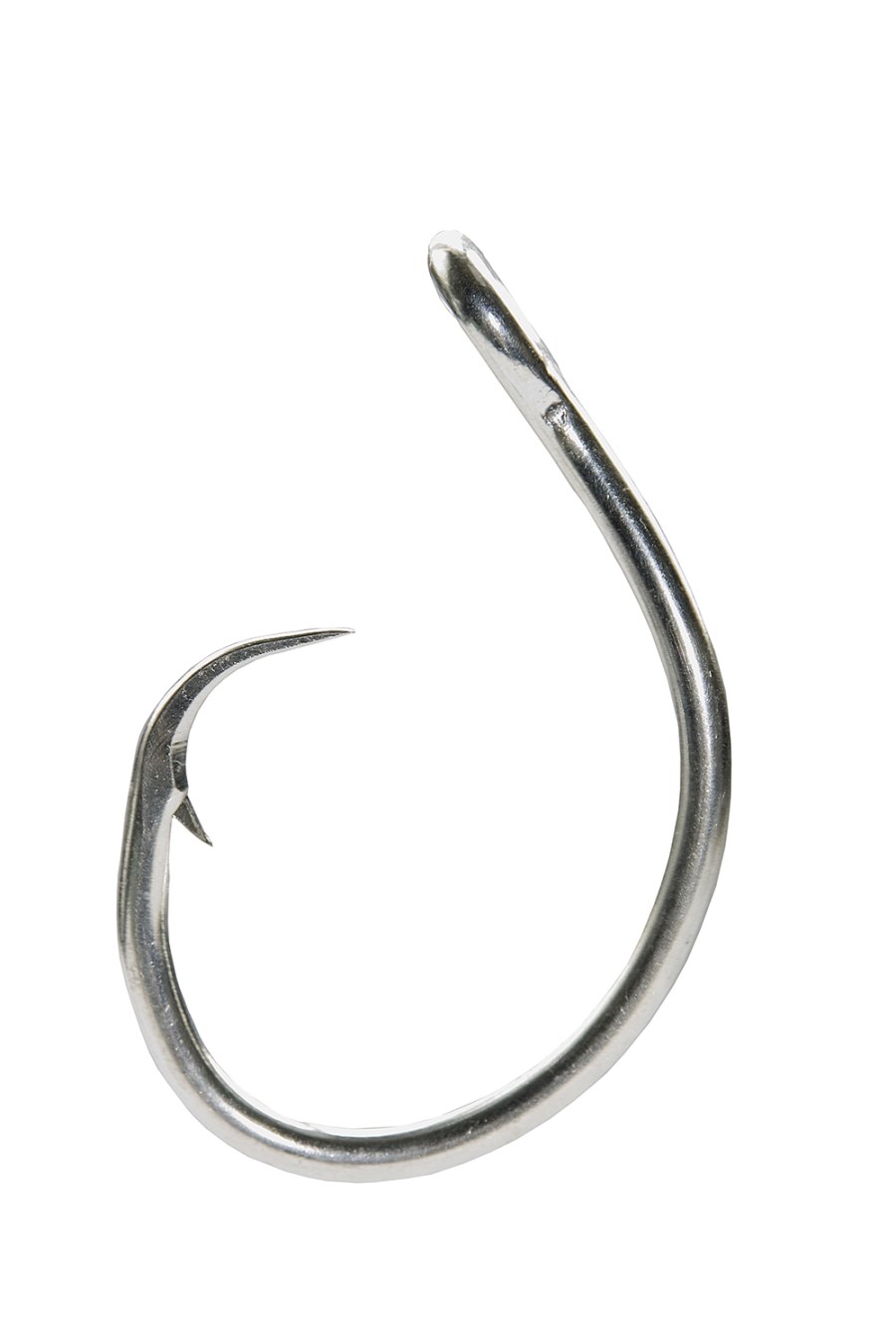
The really good anglers will check their hook points after each cast. Shingle and stones will quickly dull the points of even the best hooks out there. If you’re fishing with hooks that are not razor sharp, you’re likely to miss many fish. Some anglers are under the illusion that because they use new hooks every session, they’ll still be sharp as razors after a few casts. This is not the case. Buy an Eze Lap diamond sharpening file (fine or super fine) and sharpen it when needed. It’ll give you the edge. Many fish have tough exteriors around their mouths; they’re difficult to penetrate and will also blunt hooks. Always check the points. Is the type of hook you are using the best for the target species? if the hook is too big, you’ll reduce hook-ups. The style of hook can also be important. In my opinion, J-hooks will always out fish circle hooks for bass. Certain hooks will present a worm bait much better than others. Circles will work best for shark species. It all needs thinking about and refining.
5) RIGS
Are the guys who are out fishing you using a different rig? Do they have a longer or shorter hook length? Are their baits pinned on the bottom or popped up? Are they using attractors or a very stealthy rig? These variables can make a huge difference. Some species will like a bait pinned to the bottom, and others one higher in the water column. A long flowing trace may be fantastic in a moving spring tide; however, on a neap tide with little movement, a shorter hook length may be more desirable to the fish. I have seen it time and time again on the beach. Plaice might like a glitzy bling rig full of beads and spoons, and bass may be put off by this and prefer a very subtle, almost invisible rig. Cod and pollock may love bright colours. I was in the Outer Banks in the USA recently, chasing bluefish, red drum and sea mullet; some of the species would not touch a bait without an attractor. It was a steep learning curve at times.
6) PRESENTATION
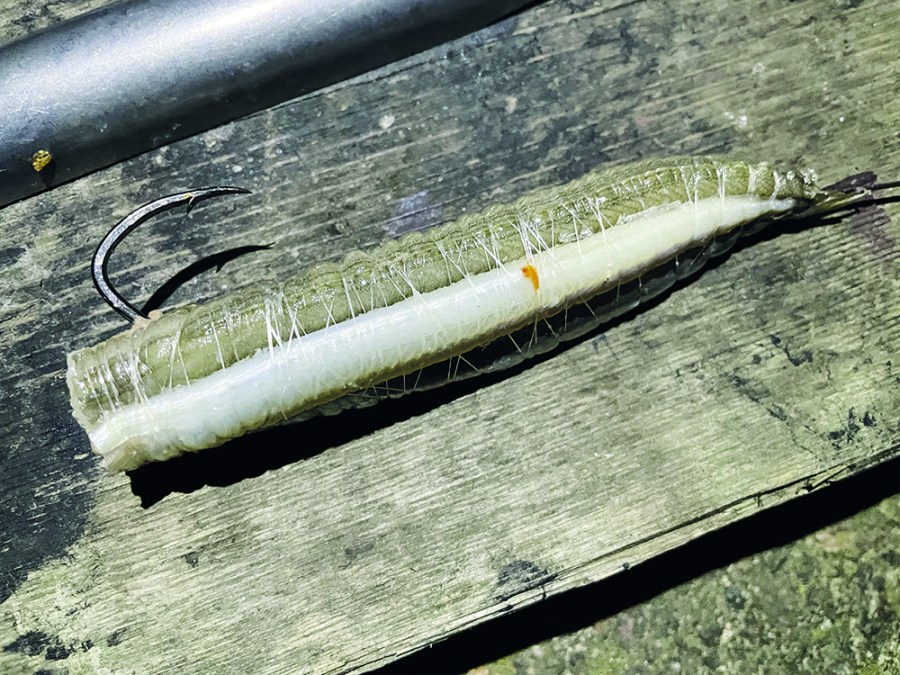
You’ve probably seen many different bait photographs in this magazine and elsewhere online. Are your hooks proud? Do they stay in place during the cast and settle that way on the seabed? If you’re reeling in hooks and a predator hasn’t attacked the bait, and the hooks have slipped, then you might not be using enough elastic in the right places, or you may need to consider a different rig or release system that protects the bait. I see so many anglers baiting up sloppily, either through inexperience of laziness. The most effective anglers around will always make an effort and reap the rewards of excellent bait presentation. It’s also worth thinking about the dynamics of a fish swallowing the bait and hooks easily. Match your hook sizes to the bait and the fish’s mouth size. People may have anecdotal experiences, but doing things well and consistently will trump all else in terms of results.
7) CASTING FREQUENCY
In matches, the most effective anglers may bait up every 10 minutes. They’ll have rigs hanging on their tripod, ready to clip on and send out once the last one is reeled in. This is not only done so that fishing time is maximised and not wasted. It is also done because these anglers want to maximise the scent trail in the water. Fresh baits hitting the water more frequently will lead to more fish. If your hooks are coming in clean, you are not baiting up regularly enough. If your pal down the beach is baiting up more often, he’ll often find more fish. If your bait is all washed out and has no scent trail left, how will the fish find it at night? Fish rely on scent trails to find food, more so than sight in many cases.
8) SOURCING THE BEST BAIT

It may not be a surprise to some of you that many of the most successful anglers either source their own bait, digging fresh ragworm and lugworm, or collect peeler crab, or use a cast net for sandeels. Some catch their own mackerel, herring, or squid in season. Failing all of that they will use a local digger, or at least inspect frozen bait in shops carefully before buying. It turns out that fish are selective, a little like humans. They prefer fresh bait over stuff that has been refrozen three times, or even once. Yes, there might seem to be exceptions, like squid that’s been refrozen or using frozen black lugworm; it’ll find you fish. The reality and the rule is that freshly dug worm, freshly caught mackerel, or squid, or live peeler crab, will out fish all of the degraded baits. I’ve seen it happen time and time again. If your mate down the beach who is gleefully out fishing everyone has better quality baits, don’t be surprised if he hauls more fish than you time and time again.
9) CONFIDENCE
Have you ever noticed when you have had a great fish, that you often have successful catches in the following sessions, and you feel as if you are well and truly in the groove? Confident anglers will catch more. They have faith in what they are doing, conviction to their methods, and this belief keeps them going when things are tough. One night, I fished for three or four hours at Osmington and another three hours at Chesil Beach. I fished with five other anglers at each venue in the freezing winter cold, and at Osmington I had a bass, one bite, one fish. At Chesil I had a couple of dogs. You may think that is a very modest return from a December night fishing with north winds, but what if I told you the other five anglers didn’t manage a single fish at either venue? You can argue that this is just a strange outcome which defies probability, a fluke. The truth is that I was on the crest of a wave. I had great sessions leading up to this night, and I was supremely confident of finding fish, and that manifested. You need to approach every single session believing you will find fish and thinking that every single cast brings you closer to your desired capture.
10) THEY WANT IT MORE
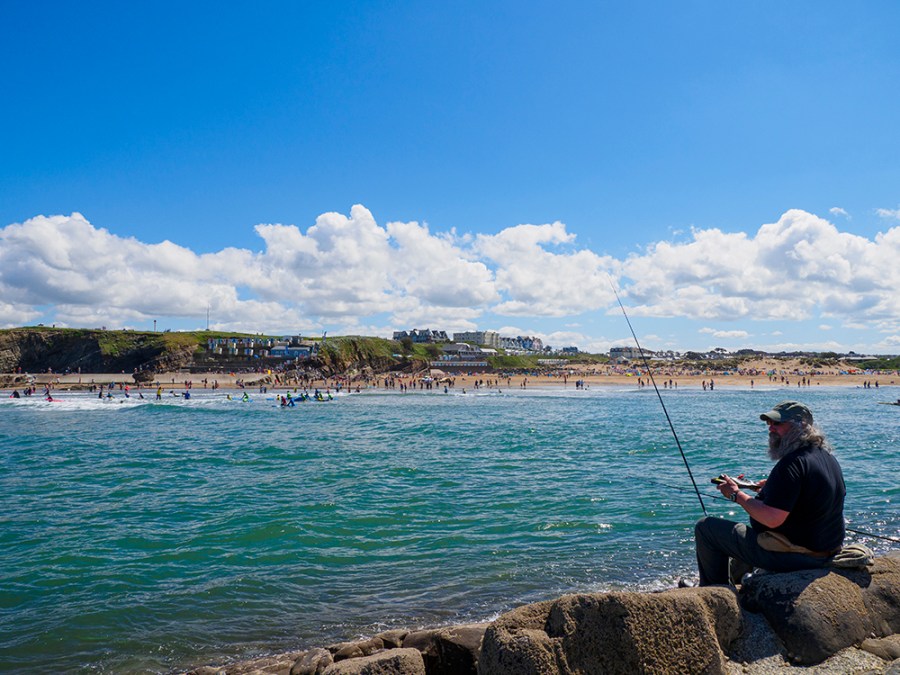
It’s possible the angler next to you is more experienced and really knows what they are doing. In most domains of life, you can outwork others and achieve absolutely fantastic results. If your life depended on a fishing session, how hard would you fish? The most successful anglers don’t treat their sessions as a jolly up, or a few hours to relax and drown some worms. They fish every session to win, to get new PBs, and to find those specimens; they are relentless. If you head to the beach just to relax, look at the stars, and to appreciate nature, that’s fine. You’ll be pleased to know that it is wonderful for your mental health and reducing stress levels. If you want to out fish your peers, you have to want it more than them, and to be competitive. Half measures will not give you the results you desire. Any successful participant on any sport will tell you the same thing: you have to want it more than your competitiors.







